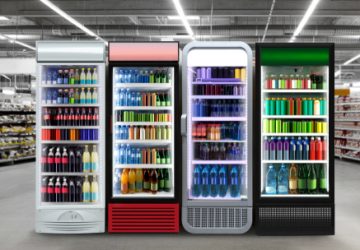Anti-soft-drink activism usually focuses on four arguments, and the
Washington Post article embraced them all.
Soft drink consumption causes childhood obesity.
In addition to the obvious flaws in David Ludwig’s research
(see “Lance It” below), the U.S. Centers for Disease
Control and Prevention is on record as saying: “There
are no data from the Harvard study that allow us to make an
estimate of what proportion of obesity might be accounted
for by changes in soft drink consumption.”
Soft drink consumption causes tooth decay.
Despite the Post’s acknowledgement that “in the
United States, cavities have decreased while soda consumption
has increased,” the article quotes the Ohio Dental Association
as saying, “Acid begins to dissolve tooth enamel in only
20 minutes.” Our advice: swallow before your 20 minutes
are up.
Soft drink consumption among kids leads to caffeine dependence.
This baseless contention depends on the work of long-time
anti-soda activist Roland Griffiths. The director of the National
Institute of Drug Abuse (which funded Griffiths’ research)
has rebutted Griffiths’ claims of caffeine addiction,
insisting that the sample group was too small to draw any
conclusions. In an earlier example of his penchant for junk
science, Griffiths drew criticism from the International Food
Information Council for trying to prove caffeine addiction
using a “sample size of only seven subjects,” including
himself and six fellow researchers.
Soft drink consumption can deplete bones of calcium.
This porous myth lives on, despite the fact that the researcher,
Grace Wyshak, never measured bone density and didn’t
ask how much soda her subjects drank. In her own words: “the
[study] design is cross-sectional and causality cannot be
inferred from the data.”
We wish we could say for sure that these weightless arguments
will dry up and blow away. Unfortunately, they are gaining
gravitas with every media report. As long as headlines like
“Soda pop is killing our children” (OOH!) sell more
newspapers than “Refreshing drinks please a wide audience”
(Ho-hum), these campaigns will continue to gain new converts.
Activist groups like the Center for Science in the
Public Interest and the Physicians Committee
for Responsible Medicine have been trumpeting
a study in The Lancet by Harvard’s
Dr. David Ludwig, whose research purportedly
connects soda drinking to obesity. However,
a Lancet editorial observed that “a
large proportion of the children [in Ludwig’s
study] were obese” to begin with –
which, the Lancet points out, certainly
affected the study’s outcome.Ludwig himself concluded in the study’s findings
that “there is no clear evidence that
consumption of sugar per se affects food
intake in a unique manner or causes obesity.”
Still, his study garnered radio and TV airtime
all across America and inspired a host of
newspaper editorials calling for reductions
in soft drink consumption, as well as for
outright bans in schools.




